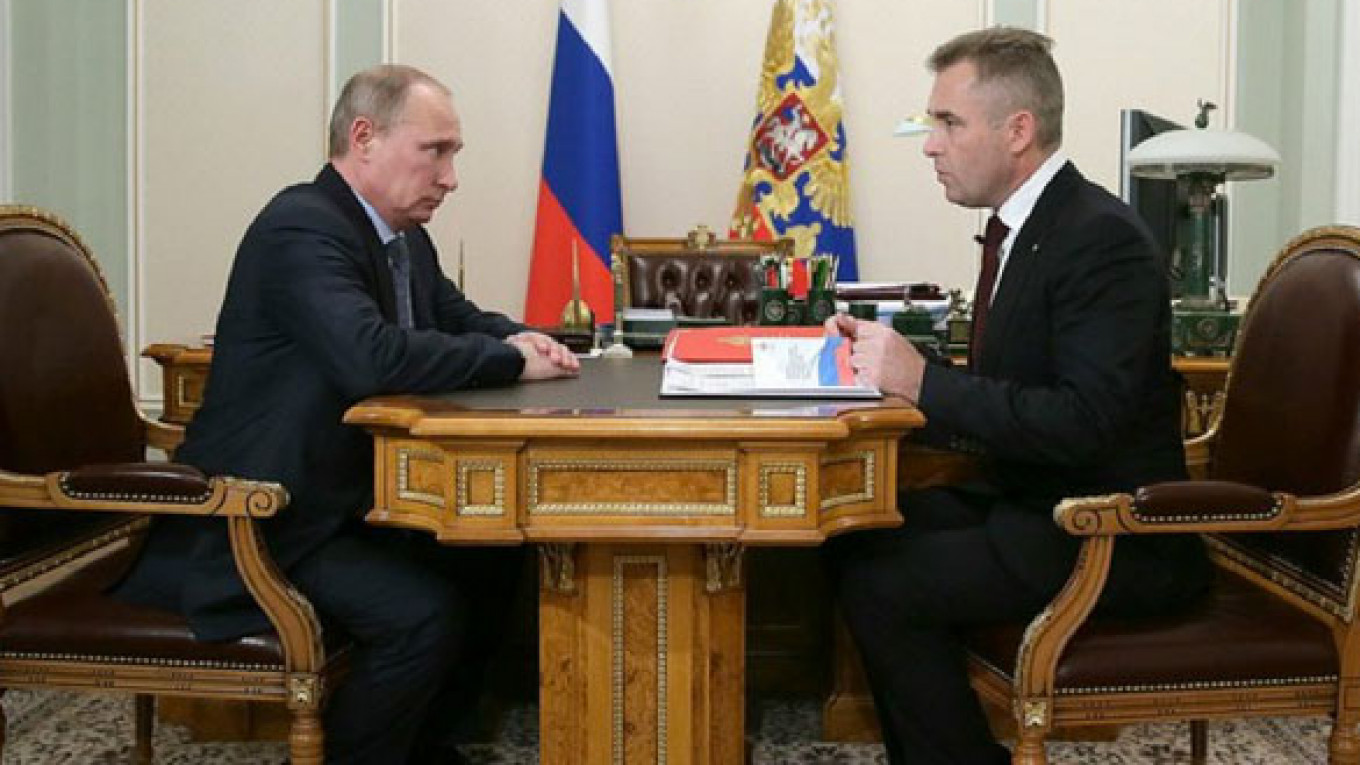The number of Russian orphans and abandoned children has dropped from 140,000 to a little under 107,000 in the past five years, due to state policies encouraging domestic adoptions, children's ombudsman Pavel Astakhov said Monday.
Following the controversial ban on U.S. adoptions that took effect in January 2013, the majority of children taken from Russian orphanages last year were adopted inside the country, Astakhov said while reporting the results of his yearly work to President Vladimir Putin, Astakhov's website reported.
In the wake of the U.S. adoption ban, passed by parliament in retaliation for a U.S. law that punishes suspected Russian human rights violators, Moscow has been under pressure to increase domestic adoption rates, which have been stubbornly low in recent years compared to the number of orphans in need of homes.
Still, less than 20 percent of Russians say they would ever consider adopting a child, due to insufficient income, a lack of government support and poor housing conditions, according to a national poll released in mid-November by the Foundation for Supporting Children in Difficult Situations.
Astakhov painted a rosier picture of the situation in his meeting with Putin, however, saying that the majority of adoptions were now by Russians, arguing that the change was due to the fact that "there were no more American adoptions in 2013."
"And this exactly indicates that not only efforts of the state in this case have led to such results, but first and foremost a very active stance of society, because we know how public at the start of [last] year was agitated by our certain decisions [and] laws that were enforced," Astakhov said in reference to the public discontent over the ban on U.S. adoptions.
But one positive consequence of the ban, Astakhov said, was that now "no one in Russia remains indifferent to the problems of orphaned children."
Astakhov attributed the growth in adoptions in part to the improved selection, training, education and support of adoptive parents.
Last week, Astakhov also said that the overall number of adoptions had grown by 6.7 percent compared to the previous year, to more than 65,000. He said that figure compared to an average yearly increase of 1 to 1.5 percent between 2009 and 2013.
Astakhov's press office referred an inquiry for more statistics to the Education and Science Ministry. A ministry spokesman said that Astakhov had announced "forecasted" statistics and that no other figures were yet available. The spokesman said final numbers would be released in April.
Contact the author at n.krainova@imedia.ru
A Message from The Moscow Times:
Dear readers,
We are facing unprecedented challenges. Russia's Prosecutor General's Office has designated The Moscow Times as an "undesirable" organization, criminalizing our work and putting our staff at risk of prosecution. This follows our earlier unjust labeling as a "foreign agent."
These actions are direct attempts to silence independent journalism in Russia. The authorities claim our work "discredits the decisions of the Russian leadership." We see things differently: we strive to provide accurate, unbiased reporting on Russia.
We, the journalists of The Moscow Times, refuse to be silenced. But to continue our work, we need your help.
Your support, no matter how small, makes a world of difference. If you can, please support us monthly starting from just $2. It's quick to set up, and every contribution makes a significant impact.
By supporting The Moscow Times, you're defending open, independent journalism in the face of repression. Thank you for standing with us.
Remind me later.






